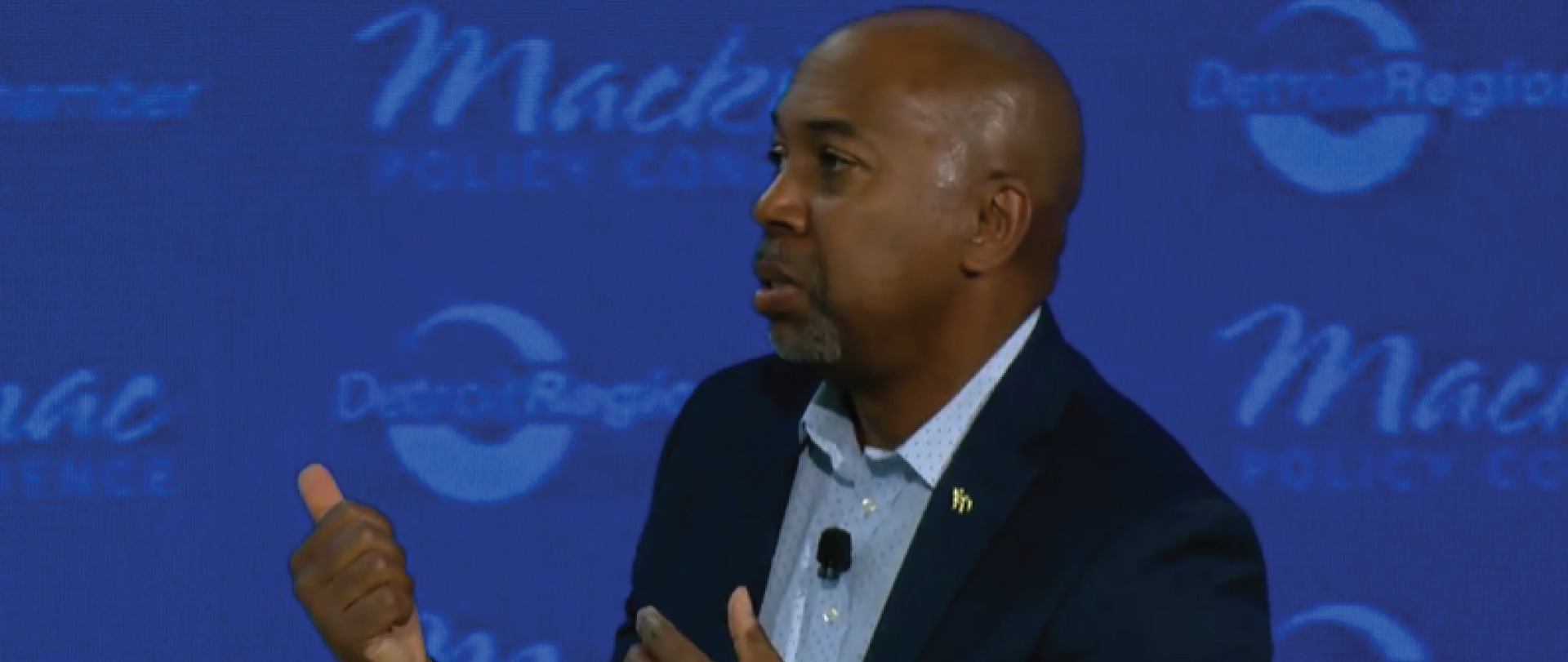May 30, 3034
Ferris State President Pink at Mackinac Policy Conference: Higher education can be leaders in developing talent, but employers can play a large role

Higher education can continue as leaders in developing a talented workforce in Michigan, but employers can play a huge role in helping students grow their careers in the state, Ferris State President Bill Pink told leaders attending the Mackinac Policy Conference.
Joining Pink were the presidents of the University of Michigan, Michigan State University, and Oakland University on a panel discussing talent and partnerships at the conference organized by the Detroit Regional Chamber that attracts lawmakers, business leaders and journalists from across the state and nation.
The conference’s 2024 theme is “Bridging the Future Together,” inspiring radical collaboration
across divides.
Conference speakers and sessions focused on key themes critical to Michigan’s future,
including attracting businesses and jobs, improving education outcomes to ensure workforce
readiness, strengthening infrastructure, and leading with innovation and equity.
Pink spoke about his role on Gov. Gretchen Whitmer’s Growing Michigan Together Council, co-chairing a higher education workgroup. He said that while some people question the value of higher education, colleges and universities continue to be the best places for students to gain in-demand skills in evolving existing fields while new fields emerge.
“Our institutions continue to do the work in providing a workforce for our state and surrounding states,” Pink said. “At our institution, we always celebrate the fact that 92 percent of our graduates of Ferris State stay in the state of Michigan and make a difference in the state of Michigan.”
He said colleges can highlight the programs they offer and can capture the imagination of younger students making them aware of the types of careers available in the state.
Ferris State, for example, has Michigan’s only College of Optometry and PGA Golf Management Program, nationally recognized programs in emerging fields such as cyber security and esports, and prominent automotive and construction programs.
The university offers more than 250 associate, bachelor’s, master’s, doctorate, and certificate programs in a wide range of fields, including artificial intelligence, criminal justice, pharmacy, advanced manufacturing, and healthcare careers.
“We’re trying to focus more on working with the companies that are our partners across
the state and our K-12 partners to do more to help expose those students to the possibilities,”
he said.
Pink said employers have increasing opportunities to engage higher education institutions
to ensure students have up-to-date skills to step right into careers. He noted that
an added benefit of this engagement is keeping talented students from heading to other
states after graduation.
“While they are going to school, we have to have some of those learning opportunities – those internships, those externships, those opportunities where our students already are becoming connected to companies,” he said. “The more we can focus on getting them connected to incredible businesses that we have here in the state prior to graduation to make those connections, the better opportunity we have to keep them here, so they understand what it means to stay in the state of Michigan.”
Pink was on the panel with U of M President Santa J. Ono, Michigan State President Kevin Guskiewicz, and Oakland University President Ora Hirsch Pescoviitz. Michigan Radio Political Director Zoe Clark moderated the discussion.

